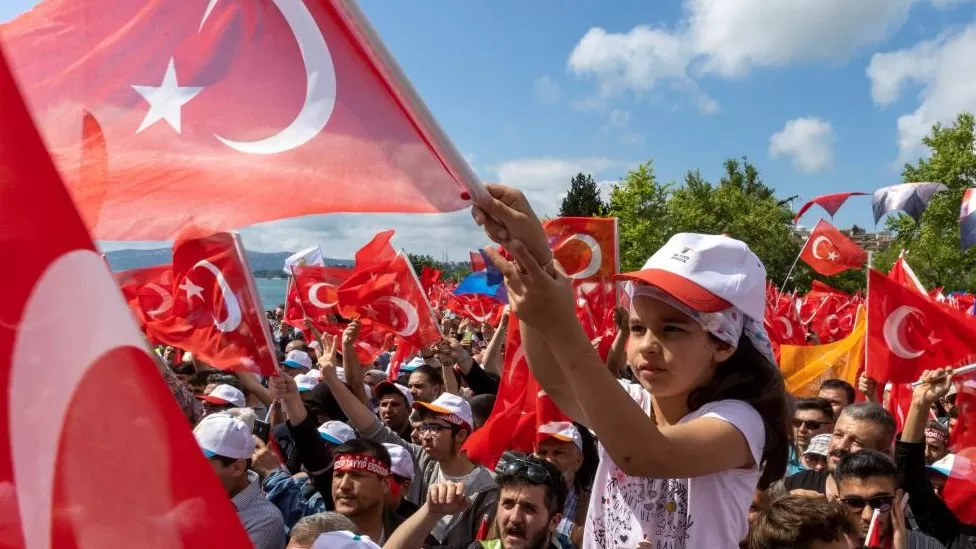TURKS are voting in a momentous presidential run-off to decide whether or not Recep Tayyip Erdogan should remain in power after 20 years.
His challenger Kemal Kilicdaroglu, backed by a broad opposition alliance, has billed the vote as a referendum on Turkey’s future direction.
The president, who is favourite to win, promises a new era uniting the country around a “Turkish century”.
But the more pressing issue is rampant inflation and a cost-of-living crisis.
Polling stations close at 17:00 local time (15:00 BST). Turkish expats in Europe and the US have already cast their vote.
Turnout in the first round was an impressive 88.8%, and Mr Erdogan’s lead was 2.5 million votes. That is why both candidates have their eye on the eight million who did not vote – but could this time.
Ahead of the run-off Mr Kilicdaroglu accused his rival of foul play, by blocking his text messages to voters while the president’s messages went through.
Opposition parties are deploying an army of volunteers in a bid to ensure no vote-rigging takes place.
International observers spoke of an uneven playing field after the first round. But there was no suggestion that any irregularities in voting would have changed the result.
Mr Kilicdaroglu promised a very different style of presidency on his final day of campaigning: “I have no interest in living in palaces. I will live like you, modestly… and solve your problems.”
It was a swipe at Mr Erdogan’s enormous palatial complex on the edge of Ankara which he moved to when he switched from prime minister to president in 2014. After surviving a failed coup in 2016 he took on extensive powers, detained tens of thousands of people and took control of the media.
So it was laden with symbolism when he paid a campaign visit on Saturday to the mausoleum of a prime minister executed by the military after a coup in 1960.
“The era of coups and juntas is over,” he declared, linking Turkey’s current stability to his own authoritarian rule.
Turkey, however, is deeply polarised, with the president reliant on a support base of religious conservatives and nationalists, while his opposite number’s supporters are mainly secular – but many of them are nationalist too.
For days the two men traded insults. Mr Kilicdaroglu accused the president of cowardice and hiding from a fair election; Mr Erdogan said his rival was on the side of “terrorists”, referring to Kurdish militants.
But after days of inflammatory rhetoric about sending millions of Syrian refugees home, the opposition candidate returned to Turkey’s number-one issue – the economic crisis, and in particular its effect on poorer households.
A 59-year-old woman and her grandson joined him on stage to explain how her monthly salary of 5,000 lira (£200; $250) was now impossible to live on as her rent had shot up to 4,000 lira (£160; $200).







